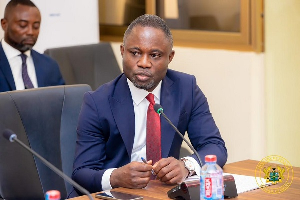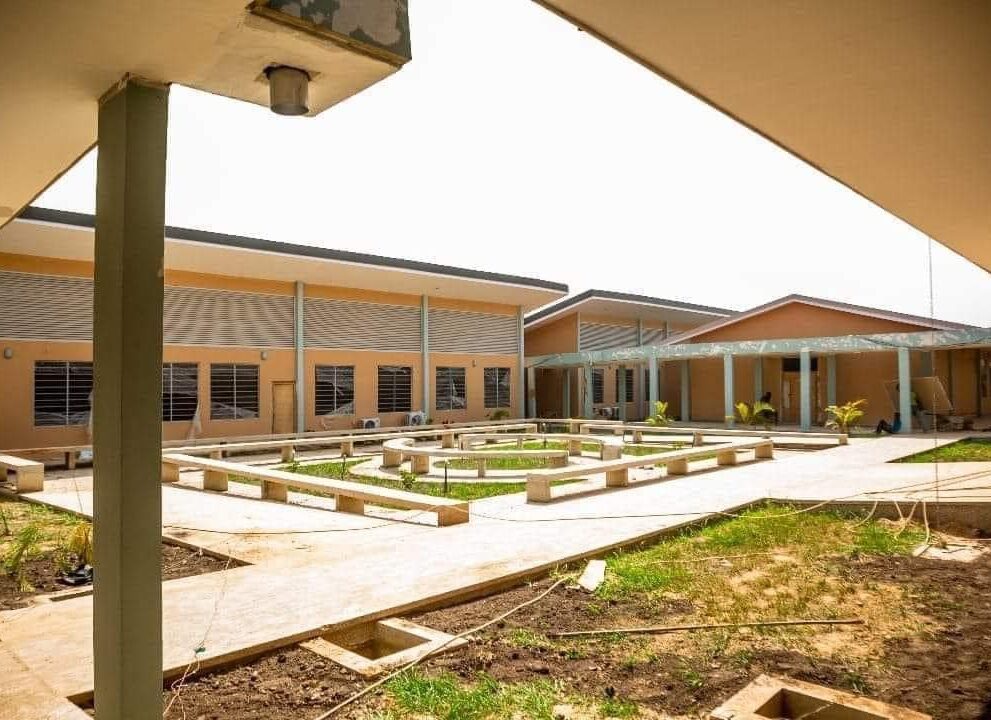Residents of Appiadu, Kokoben, and neighbouring communities in the Oforikrom Municipality of the Ashanti Region are voicing growing frustration over the continued dormancy of their long-awaited Agenda 111 hospital. The facility, one of the flagship health infrastructure projects initiated under the previous New Patriotic Party (NPP) government, was officially commissioned on December 5, 2024, amid high expectations that it would transform healthcare delivery in the municipality. Yet, months later, the hospital remains incomplete and non-operational, leaving thousands without the local medical access they were promised.
For many in these peri-urban communities, the absence of a functioning hospital is more than an inconvenience—it is a daily hardship with potentially life-threatening consequences. “The only hospital closest to us is Emena. With that, it becomes very difficult commuting to the hospital, especially when the patient does not own a car,” explained Beatrice Atisogbe, a resident of Kokoben. Her concerns are echoed by others who point out that the nearest alternatives, in Emena and Donyina, are far from ideal for urgent care. Richmond Boamah, also from Kokoben, noted that “having this facility operational would be a great relief for us. Currently, it is extremely difficult to find transportation after 9 PM, especially in emergencies involving pregnant women”.
The logistical challenges are compounded by the municipality’s limited public transport options, particularly at night. Kwadwo Asamoah, another Kokoben resident, lamented that “with the hospitals still non-operational, our only options are Emena or Donyina. Emena, particularly, is far from here”. For residents without private vehicles, delays in reaching care can mean the difference between life and death, especially in cases of obstetric emergencies, severe illness, or trauma.
The reasons for the hospital’s stalled opening were laid bare during a visit by Health Minister Kwabena Mintah Akandoh on March 3, 2025. The minister revealed that an outstanding debt of more than GHC 800 million must be cleared before the facility can

begin operations. This financial shortfall has left the project in limbo, with no clear timeline for resolution. Even more troubling, Honorable Akandoh disclosed that there is currently no action plan in place for staffing the hospital once construction is complete, raising questions about the government’s readiness to operationalise the broader Agenda 111 network of facilities.
The Oforikrom hospital was envisioned as a critical addition to Ghana’s healthcare landscape, designed to serve a rapidly growing population in peri-urban areas where existing facilities are overstretched. Its commissioning last December was accompanied by political fanfare and community optimism, but the subsequent months have seen that optimism give way to disillusionment. Without a functioning hospital, residents continue to rely on distant facilities, often at great personal and financial cost.
The situation in Oforikrom reflects broader challenges facing the Agenda 111 initiative, which aims to construct and equip 111 district and regional hospitals across the country. While the programme has been touted as a transformative investment in Ghana’s health infrastructure, delays, funding gaps, and questions over staffing threaten to undermine its impact. In Oforikrom, the gap between promise and reality is felt acutely, as residents watch a brand-new hospital building stand idle while their healthcare needs go unmet.
As the debt issue lingers and staffing plans remain undefined, the people of Appiadu, Kokoben, and surrounding areas are left in a state of uncertainty. Their appeals are straightforward: they want the facility they were promised to be completed, staffed, and opened without further delay. Until then, the Agenda 111 hospital in Oforikrom will remain a symbol not of progress, but of unfulfilled potential.
Source: Agenda 111 Hospital in Oforikrom remains incomplete, residents frustrated – Channel1 News



